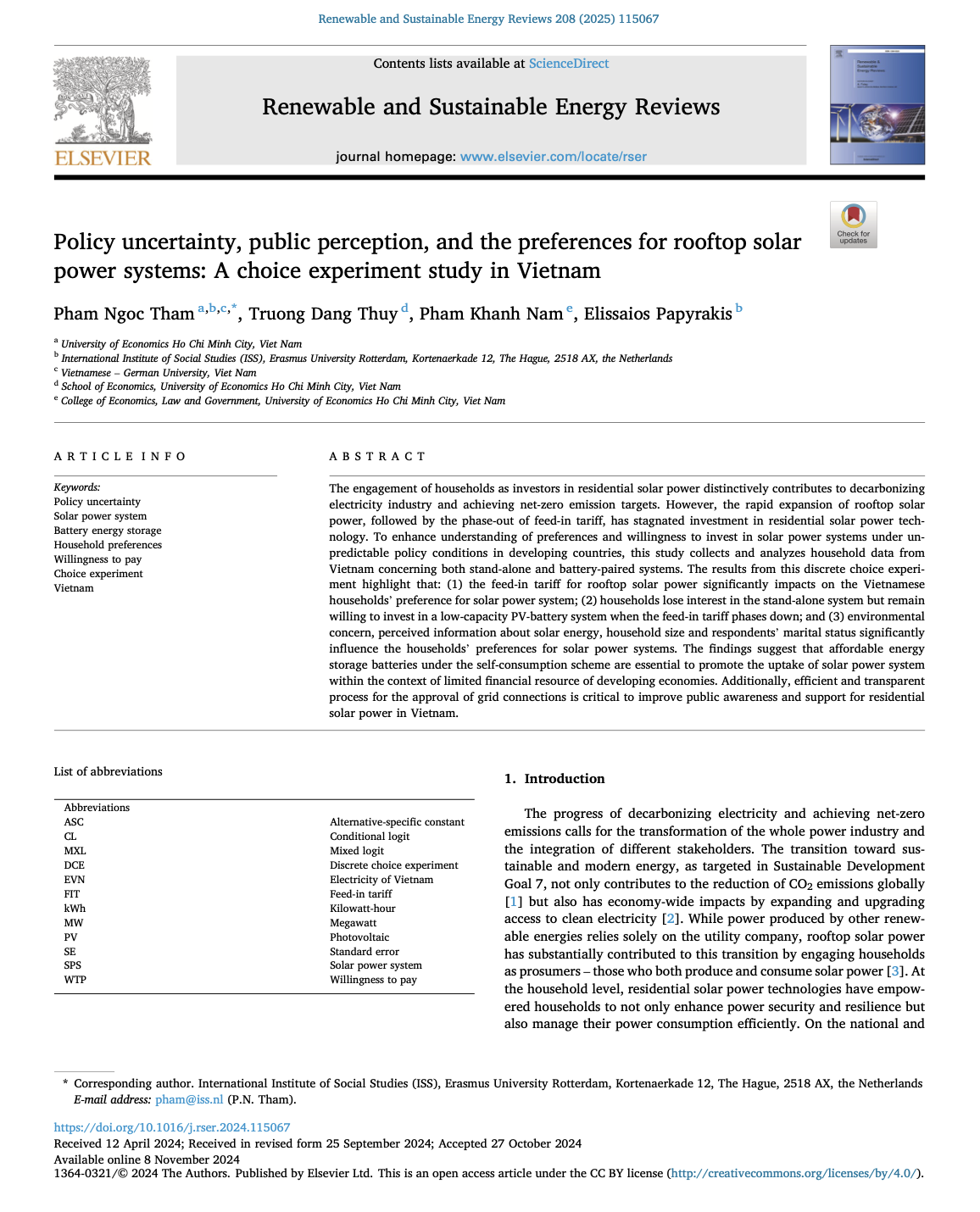
Keyword(s)
Author(s)
Pham Ngoc Tham, Truong Dang Thuy, Pham Khanh Nam, Elissaios Papyrakis
Country(ies)
Published Date
Access
DOI
The engagement of households as investors in residential solar power distinctively contributes to decarbonizing electricity industry and achieving net-zero emission targets. However, the rapid expansion of rooftop solar power, followed by the phase-out of feed-in tariff, has stagnated investment in residential solar power technology. To enhance understanding of preferences and willingness to invest in solar power systems under unpredictable policy conditions in developing countries, this study collects and analyzes household data from Vietnam concerning both stand-alone and battery-paired systems. The results from this discrete choice experiment highlight that: (1) the feed-in tariff for rooftop solar power significantly impacts on the Vietnamese households’ preference for solar power system; (2) households lose interest in the stand-alone system but remain willing to invest in a low-capacity PV-battery system when the feed-in tariff phases down; and (3) environmental concern, perceived information about solar energy, household size and respondents’ marital status significantly influence the households’ preferences for solar power systems. The findings suggest that affordable energy storage batteries under the self-consumption scheme are essential to promote the uptake of solar power system within the context of limited financial resource of developing economies. Additionally, efficient and transparent process for the approval of grid connections is critical to improve public awareness and support for residential solar power in Vietnam.